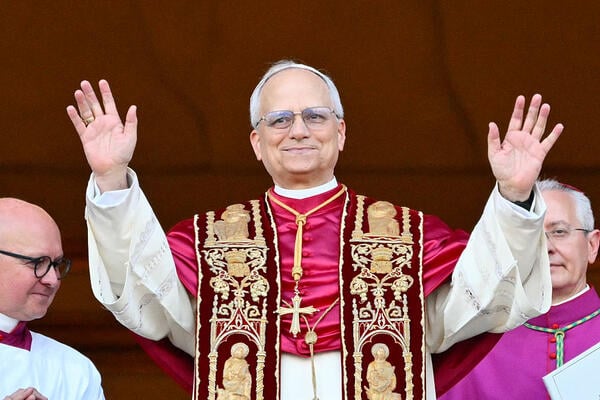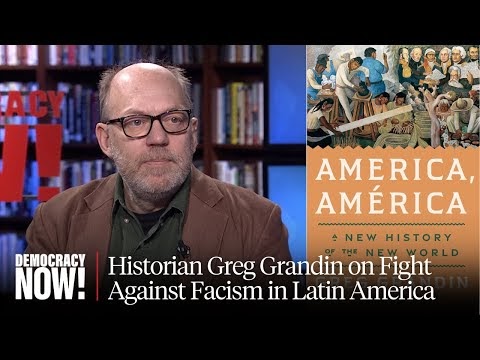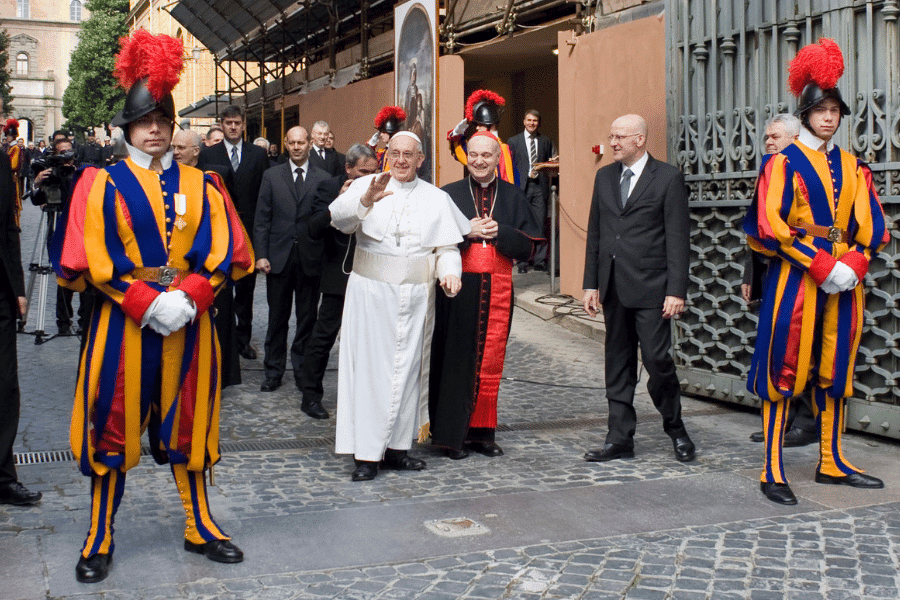If you’ve seen the award-winning film “Conclave”, you now know how exciting it can be when Catholicism’s cardinals gather behind closed doors to elect a new pope. The declining health in Pope Francis, 88, means another conclave is coming sooner rather than later.
So who is likely to win? The truth is — we have no idea.
What are the issues the world’s 1.3 billion Catholics would like the next head of their worldwide Church to tackle? We don’t know that for certain either.
In his 12 years as pope, Francis has so scrambled the Church and the traditional paths toward becoming its leader that the conclave — already the strangest election you’ll never see — is even harder than ever to predict.
With the 120 cardinal electors so unsure, unforeseen events like a stirring speech behind closed doors can produce big changes. That’s how Buenos Aires Cardinal Jorge Bergoglio became Pope Francis back in 2013.
Don’t trust the early bets.
Another lesson from recent conclaves is to be very wary of any lists of leading candidates. They are not based on opinion polls or popularity contests like forecasts before political elections.
They are in fact little more than educated guesses by journalists and bookmakers, and can be laughingly far off the mark.
Many lists prior to the 2005 conclave named Milan Cardinal Dionigi Tettamanzi as a leading candidate; he reportedly got only two votes. In 2013, the pro-conclave lists of papabili — potential popes — did not even mention the eventual winner.
But readers always want to know what will happen, and the final result we can’t predict. Since this will be the third conclave I’ve either covered or commented on, let me at least say what to expect.
First of all, if you want, go see the film “Conclave” — at best before we learn if it has won any Oscars. Sure, the film is tenser and more action-packed than a real conclave, and its ending seems improbable. Due to timing limits, the leading characters are painted with a rather cartoonish brush. There are some small mistakes.
But this is entertainment, not a documentary. It is beautifully filmed. It gives an idea of the predictable ritual and possible mishaps that could influence the outcome. It’s worth seeing even if not totally believing.
Politicking for popedom
As the film shows, hopeful candidates drum up support without publicly declaring their candidacy. Open campaigning is out but supporters eagerly swap information about favorites and opponents.
Speeches about the Church during the closed-door “general congregations” meeting the week before the conclave become veiled campaign pitches for the ambitious.
Once they enter the Sistine Chapel for the conclave, the cardinals are cut off from the outside world and sworn to secrecy. This lasts for a few days of voting — a two-thirds majority is needed — until white smoke goes up from the chapel’s chimney and the new pope appears in public for the first time on the balcony of St. Peter’s Basilica next door.
What makes this conclave even more unpredictable than earlier ones is that Pope Francis has often overlooked traditional cardinal’s seats in Europe to give red hats to lesser-known and more pastorally-minded bishops from his beloved “peripheries.”
There are now cardinals in unlikely places such as Yangon, Ulaanbaatar, Algiers and Tehran, representing minuscule communities of Catholics. It’s hard to say what these prelates think or how they will vote.
A new pope could mean a new direction.
Pope Francis has appointed about 80 of the current cardinal electors out of 120, so the two-thirds majority needed for election should be there. But since so many of them are not known in Rome, it’s hard to say whether they want to continue his policies or take the Church in a different direction.
After the 2013 conclave, several conservative Catholic groups — mostly in the United States — disapproved of Pope Francis’s more open style. They said cardinals did not have enough information before they voted him in, and vowed to publish detailed profiles of all prelates on the internet.
The College of Cardinals Report seems the furthest advanced, with profiles of 40 cardinals with their positions on key issues like abortion or woman priests. It is headed by Edward Pentin, a conservative Vatican watcher.
Another project, the Red Hat Report, began in 2018 with lots of publicity saying ex-FBI agents would do some of the research and freelancers would help edit cardinals’ Wikipedia pages. It also leans conservative but has not made much noise recently.
Their main candidate appears to be Budapest Cardinal Péter Erdő, who headed the Council of the Bishops’ Conferences of Europe from 2006 to 2016.
Considered close to Hungarian Prime Minister Viktor Orbán, he seems not to share Pope Francis’s very welcoming views on migration but has hosted two visits by Pope Francis to Budapest.
Power in the Global South
Another conservative noticed is Kinshasa Cardinal Fridolin Ambongo Besungu, although the very traditional stances African prelates take turn off other cardinals.
Progressives mentioned include Bologna Cardinal Matteo Zuppi, head of the Italian Bishops Conference, and Curia Cardinal Luis Tagle, a Filipino once dubbed the “Asian Francis.” But it’s unclear whether a majority of cardinals wants an extension of the Francis years.
There are also moderates such as two Italians — possibly too diplomatic Cardinal Pietro Parolin, the current Secretary of Stage (number two man at the Vatican), and Cardinal Pierbattista Pizzaballa, the Latin Patriarch of Jerusalem — as well as French Cardinal Jean-Marc Aveline, who shares Pope Francis’s interest in the Mediterranean and caring for its migrants.
But with two-thirds of all Catholics now in the Global South, will the conclave return to the Italian and then European monopoly on the papacy after an Argentinian pope?
There are far more questions than answers. We’ll only start to know the responses after the white smoke rises.
Three questions to consider:
1. Why was Pope Francis hailed as a rule-breaker when he was elected to head the Catholic Church in 2013?
2. How does politics play out in the election of a new pope?
3. If you were part of the next conclave what would you be looking for in the candidates for pope?



